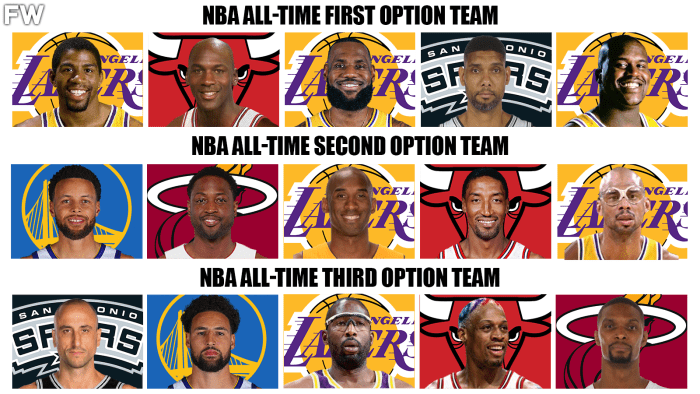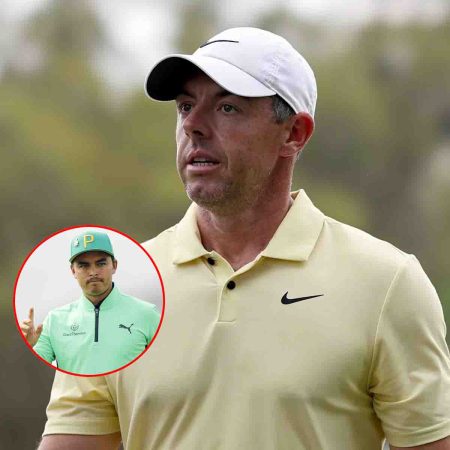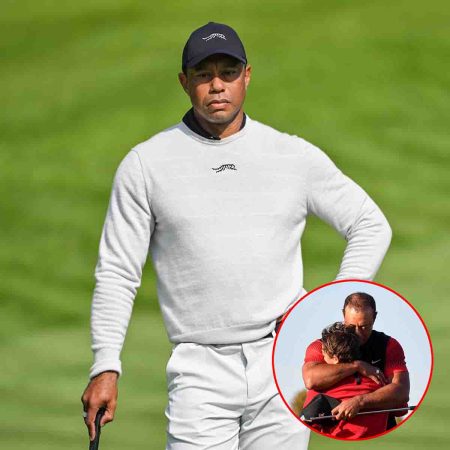Superstar players gain the most recognition throughout the NBA. After all, they make the most money, have the most pressure to perform, and often have the most impact on the floor for their teams. The elite players on a team are known as the first options, as they handle the bulk of the pressure when the team does not win and take the majority of the praise when things go well. Of course, first options also need to compete hard on both ends of the court and are normally the primary scoring threats. Throughout history and until today, that has not changed, and it never will.

Even if the first options are the most elite players, that doesn’t mean that sidekicks don’t deserve the recognition as, well. As a matter of fact, the second NBA star on the team is often just as important as the main superstar because they are capable of playing alongside the number one option and relieving pressure off him. Without a true second star, an NBA superstar will find it incredibly difficult to achieve team goals. Second options are critical because every championship team has one, and we have even seen the greatest 1-2 punches of all time. Even more, third options have historically been critical.
We have seen dominant third options on most superteams throughout history, and these guys are also required to be scoring threats and do a little more of the dirty work than second options. The third options that won multiple championships often go underappreciated due to them sacrificing their personal stats, but in doing so, they have managed to achieve incredible success. Basketball is a team game, and every player is important, but here are the all-time starting fives of the First Option, Second Option, and Third Option teams. It is amazing to see how dominant these players were during their times, and it yields very interesting lineups.
NBA All-Time Third Option Team

Credit: Fadeaway World
Starting Lineup: Manu Ginobili, Klay Thompson, James Worthy, Dennis Rodman, Chris Bosh
Manu Ginobili is the greatest playmaker at the shooting guard position when looking at third options. Ginobili won four NBA titles in his career and perhaps had the most sacrifice because he was an elite scorer, playmaker, and defender who only made two All-Star Teams in his career. Ginobili was convinced by Gregg Popovich to accept a 6th man role because he could terrorize the opposing bench players. Four NBA titles look good on his resume, along with a Hall of Fame induction.
Klay Thompson is another elite offensive player who accepted sacrifice, making five All-Star Teams when he probably could have made a few more. After Stephen Curry, Klay is considered the greatest pure shooter of all time, as he holds the record for most threes in a single game (14 makes). Klay had to be a third option for the Warriors in 2017 and 2018 behind Kevin Durant and Curry. Klay was also the third-best player behind Iguodala and Curry in 2015 and let his own stats decline for the sake of winning four NBA titles.
James Worthy is another all-time great third option who sacrificed his own stats for the sake of Magic Johnson and Kareem Abdul-Jabbar. Worthy was the primary perimeter defender for the Lakers and the third-best player behind Magic and Kareem. Known as “Big Game James,” Worthy had his best moments in the playoffs and the Finals specifically, which is why he even managed to win the 1988 Finals MVP.
Dennis Rodman is the greatest non-offensive threat ever. Rodman did not need to score at all, mainly because he had Michael Jordan and Scottie Pippen creating everything for the Bulls. Rodman was mainly focused on defending, rebounding, and competing hard on both ends of the court for the sake of the Chicago Bulls. Not to mention, Rodman also won back-to-back NBA titles with the Pistons in 1989 and 1990, as Isiah Thomas, Joe Dumars, and Vinnie Johnson were the primary scoring threats.
Chris Bosh was forced into the third-option role with the Miami Heat, even if he averaged 24.0 PPG, 10.8 RPG, and 1.0 BPG with the Toronto Raptors in the 2010 season. Bosh was the primary option in Toronto, but he was not winning. By joining LeBron James and Dwyane Wade in Miami, Bosh had to sacrifice his own stats and individual praise for the sake of the team. Capturing two NBA titles and making all six All-Star Teams in Miami, Bosh completely accomplished his mission, even if his stats took a hit.
NBA All-Time Second Option Team

Credit: Fadeaway World
Starting Lineup: Stephen Curry, Dwyane Wade, Kobe Bryant, Scottie Pippen, Kareem Abdul-Jabbar
Curry, the greatest shooter ever, had to play a second-option role at point guard behind Kevin Durant during the 2017 and 2018 seasons. Steph was the man in 2015, although Andre Iguodala won Finals MVP, and was the man in 2022 while winning his first Finals MVP. Curry was an incredible second option behind Durant, posting 26.8 PPG, 8.0 RPG, and 9.4 APG in 2017 and 27.5 PPG, 6.0 RPG, and 6.8 APG in 2018. Curry’s numbers are certainly superstar-level, but there is no doubt that Durant was the man in Golden State for two of the point guard’s Finals wins.
Dwyane Wade is one of the greatest slashers ever, beating any defender off the dribble and getting to the rim anytime. Wade was the man in 2006, winning Finals MVP by averaging 34.7 PPG. However, Wade had to accept a secondary role to LeBron James between 2012 and 2014, winning two titles as a result. Wade knew he had to step back to allow The King to lead the way, and it turned out in the shooting guard’s favor.
Kobe Bryant was the first option in 2009 and 2010, winning both titles and Finals MVPs. Bryant was also dominant in the 2001 and 2002 Finals, although he can be considered a second option along with the 2000 Finals. Kobe knew that Shaq had to eat down low because the big man could not be stopped, and it was a quicker way of winning championships. That is why Bryant forced Shaq out following the 2004 season because the shooting guard wanted to prove he can win on his own – which he eventually did.
Scottie Pippen will start in a small-ball format because he is one of the greatest defensive players ever and the elite sidekick to Michael Jordan with the Chicago Bulls. Pippen’s postseason numbers look very solid (17.5 PPG, 7.6 RPG, 5.0 APG, 1.9 SPG, 0.9 BPG) compared to his regular season figures (16.1 PPG, 6.4 RPG, 5.2 APG, 2.0 SPG, 0.8 BPG). Scottie knew Michael would dominate the scoring charts, so focusing on defense, rebounding, and playmaking would give the Chicago Bulls the best chance to win every Finals series they competed in.
Kareem Abdul-Jabbar was certainly the Finals MVP in his second season with the Milwaukee Bucks, averaging 27.0 PPG, 18.5 RPG, and 2.8 APG. Abdul-Jabbar was also the Finals MVP in the 1985 season by averaging 25.7 PPG, 9.0 RPG, 5.2 APG, and 1.5 BPG. The big man won six NBA titles, winning four of them as the sidekick to Magic Johnson. Kareem is easily the greatest second option ever at the center spot, and it isn’t close.
NBA All-Time First Option Team
Credit: Fadeaway World
Starting Lineup: Magic Johnson, Michael Jordan, LeBron James, Tim Duncan, Shaquille O’Neal
Magic Johnson is the greatest playmaker of all time and was the man for the Los Angeles Lakers as soon as his rookie campaign. The point guard won Finals MVP in his rookie season after he stepped in for The Captain, Kareem Abdul-Jabbar, in Game 6 to win the title. Not to mention, Magic is the greatest point guard ever, and it isn’t close. Johnson benefited greatly from having Kareem and the likes of James Worthy by his side, but the point guard was the undisputed leader of the Lakers.
Guess who the man is in the other guard position? Michael Jordan won 6 NBA titles and 6 Finals MVPs as the best player for the Chicago Bulls alongside Scottie Pippen, who was his second option. MJ was not only the best scorer ever, averaging 30.1 PPG and winning 10 scoring titles, but the ultimate clutch performer. Jordan was the man in Chicago but also the face of the NBA during all his title runs. Has there ever been a more dominant postseason performer than MJ? Michael destroyed all competition to win every Finals series he competed in.
LeBron James has been the first option on his team every season of his career, even if he has joined multiple superteams in his career. The King was always the best player on his teams despite playing alongside Dwyane Wade, Anthony Davis, and Kyrie Irving over his career. As a triple-double threat, James won 4 NBA titles and 4 Finals MVPs over his illustrious career as the first option. The King did have closers and scoring options by his side, but LeBron always turned it on in the postseason by upping his scoring (28.7 PPG vs. 27.2 PPG) compared to the regular season.
Tim Duncan and Shaquille O’Neal control the frontcourt spots for the All-Time First Option squad. Duncan won 5 NBA titles as the best player for the San Antonio Spurs, sharing his Finals MVP trophies with Tony Parker in 2007 and Kawhi Leonard in 2014. In 1999, 2003, and 2005, Duncan was by far the best player on the Spurs in the Finals. Duncan benefitted from the elite Spurs system headlined by Gregg Popovich, but he was the cog.
Finally, Shaq was the most dominant center of all time after Wilt Chamberlain. The Diesel won three straight NBA titles and Finals MVPs as a member of the Los Angeles Lakers, dominating the paint year after year. Nobody could defeat the Lakers with Shaq down low and Kobe Bryant on the perimeter, as they are the best little-big duo ever. O’Neal had no answer, and he has to start at center for the all-time First Option team ahead of Hakeem Olajuwon, who only won two NBA championships.
Source: fadeawayworld








